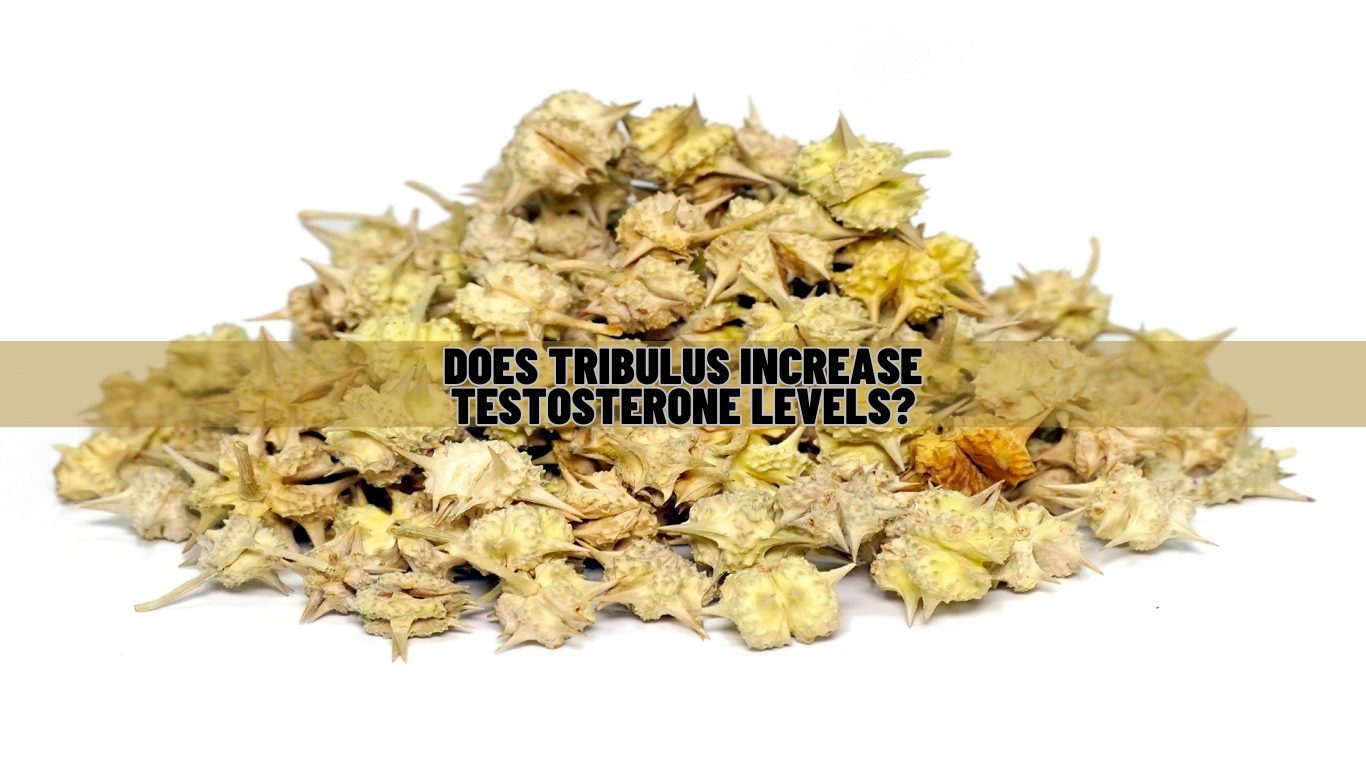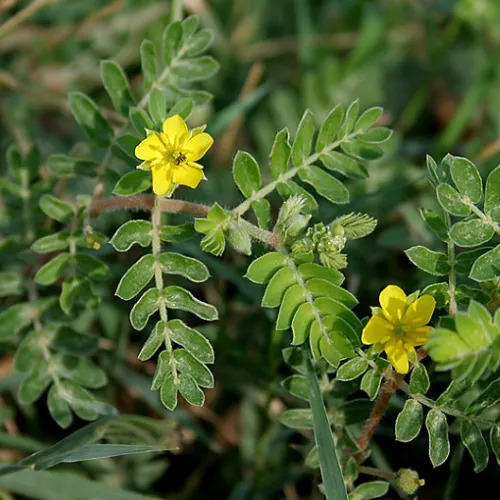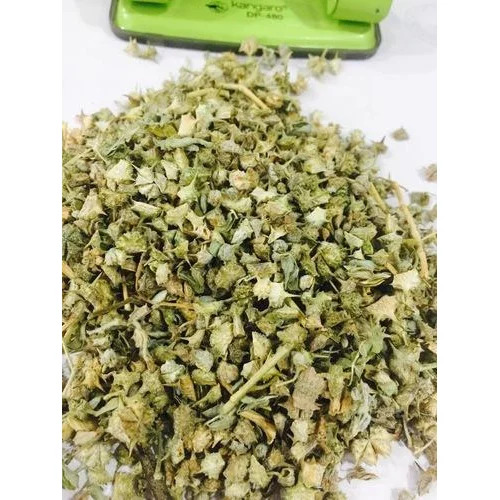Does Tribulus Increase Testosterone Levels? Know Science!

Most modern-day testosterone boosters are inclined towards making a herb-induced natural formula given the preferences of the users today. And why not? They have, time and again, proved to be safer and more economical than several other medical alternatives. One such herb, that has of late raised interest among many people is Tribulus Terrestris which has been a part of traditional cures for several decades now.
Among various other health gains including regulating blood sugar and cholesterol levels, Tribulus is also claimed to support male sexual function and improve libido. Since these have a direct association with testosterone health, it is often thought to augment natural testosterone production in men.
We have researched the available scientific journals on Tribulus Terrestris to understand if there is any truth to its testosterone-boosting claims or if they are just myths. Let’s find out the details below.
What Is Tribulus Terrestris?

Tribulus is a Mediterranean plant (belonging to the family Zygophyllaceae) covered with thorns. This plant can grow in any environmental conditions which is why it is found in different places across the world. It has been traditionally, used to treat several issues like giddiness, eye and skin disorders, blood sugar, cholesterol, cough, headache, and more. Aside from these, people also believe that this plant has the potential to restore male vitality.
Tribulus found its initial use as a supplement during the 80s when it was taken by professional weightlifters as testosterone boosters. While they gave the credit for their success to this herb, an anti-doping study later found that Tribulus supplement was mixed with a banned steroid. The report also stated that Tribulus extract alone did not improve testosterone or physical performance in those athletes.
However, since then several supplements during the 90s to early 2000s had started using and marketing Tribulus claiming to increase testosterone levels. To know more about whether it actually works or has just been hyped because of its lower cost and wide availability, let’s take a closer look at the available scientific data.
Does Tribulus Improve Testosterone Levels – What Science Says?

With everyone looking at the individual benefits of each ingredient in testosterone-boosting supplements these days, researchers have been dedicating time to investigate them individually, trying to bring out the actual reasons behind their effectiveness or, more so, whether they contribute to testosterone health in any way.
As far as Tribulus is concerned, numerous research studies exist on this herb and its potential health benefits. we are presenting here only those that concern testosterone and its associated factors.
Some Positive Results
We wanted to begin with the studies that have shown signs of the positive influence of Tribulus on testosterone.
A study was published in 2007 on the effect of Tribulus treatment on free testosterone in male rats. The findings demonstrate a significant rise in testosterone in the treatment group when compared to the control group which might be because of the aphrodisiac capabilities of the herb.
Next is a clinical intervention to test the effects of Tribulus Terrestris extract on sexual behaviour in both normal and castrated rats. Researchers found an increase in sexual behaviour and a decrease in body weight in the Tribulus-treated groups.
Following this, a few years later, another similar research also reported a statistically significant elevation in testosterone levels post Tribulus administration in the castrated animals. The study also indicated that this is likely because of the presence of a substance called protodioscin in the herb that exhibits aphrodisiac properties by boosting testosterone.
Now, so far all of the evidence that you saw is based on animal studies and there are high chances that Tribulus will not have the same influence on humans.
The only human study with some favourable results that we came across was conducted on a group of athletes to evaluate the effect of the herb on physical performance. In the clinical trial, athletes were Tribulus supplementated for 20 days. At the end of the 20-day period, there was a significant improvement in their muscle strength and physical capabilities. Researchers also noted a rise in testosterone levels for the first 10 days of the trial, however, there was no change in the second half of the trial period even after the consumption of Tribulus. Its effect on testosterone in humans thus remains inconclusive here.
Research With No Results on Testosterone Improvement

Quite a few other clinical trials have been conducted on Tribulus Terrestris. While some of them have found an improvement in certain factors associated with testosterone, the herb did not demonstrate testosterone-boosting properties in any of these experiments.
First, there is a significant study that was conducted to see whether there is any truth to Tribulus’ aphrodisiac capability and androgen-boosting potential. The review clearly concluded that even though this herb may have some aphrodisiac properties, Tribulus does not have any testosterone-enhancing capabilities. Its ability to support erection function might be because of nitric oxide-dependent activities.
Another similar study from a different group of researchers has the same conclusion that the effect of Tribulus on physiological parameters was independent of testosterone levels.
Next, we have a clinical trial conducted on 21 healthy men between age groups 20-36 to see the impact of Tribulus on testosterone metabolism. After a month of regular supplementation of this herb, the team concluded that Tribulus has no direct or indirect influence on luteinizing hormone, testosterone, or other sex hormones.
A five-week study on the effect of Tribulus supplementation on body composition and muscle strength in professional rugby players also failed to prove any effective result.
Lastly, we came across a clinical trial that was conducted to evaluate the beneficial effects of Tribulus on sexual dysfunction in men and the safety of this herb. On the positive side, a noticeable improvement in erectile functioning was noted on taking it as a supplement and there was no report of adverse effects on the body on short-term use. However, there was no statistically significant rise in the testosterone levels.
Bottomline
Tribulus has been advocated to have many health benefits which they probably have but when it comes to improving testosterone health or production, it has shown positive results only in animal studies. Most of the clinical interventions involving human subjects to analyze the effectiveness of Tribulus have concluded that the herb had no effect on testosterone nor on the muscles even though it was able to improve sexual functioning in men in a few cases.
Aside from that while most of the studies have found Tribulus to be safe and well-tolerated, it is important to note that all these studies have involved its short-term use. There are isolated reports that long-term use of this herb can lead to toxicity at the cellular level. Plus, these are the convincing reasons why some of the top-rated testosterone boosters have not included Tribulus in their ingredient blend.
All that said, if you are looking to enhance your testosterone levels in a natural way, there are numerous other testosterone-boosting ingredients and foods. Their efficacy is not only backed by compelling studies but also deemed safe for health.
